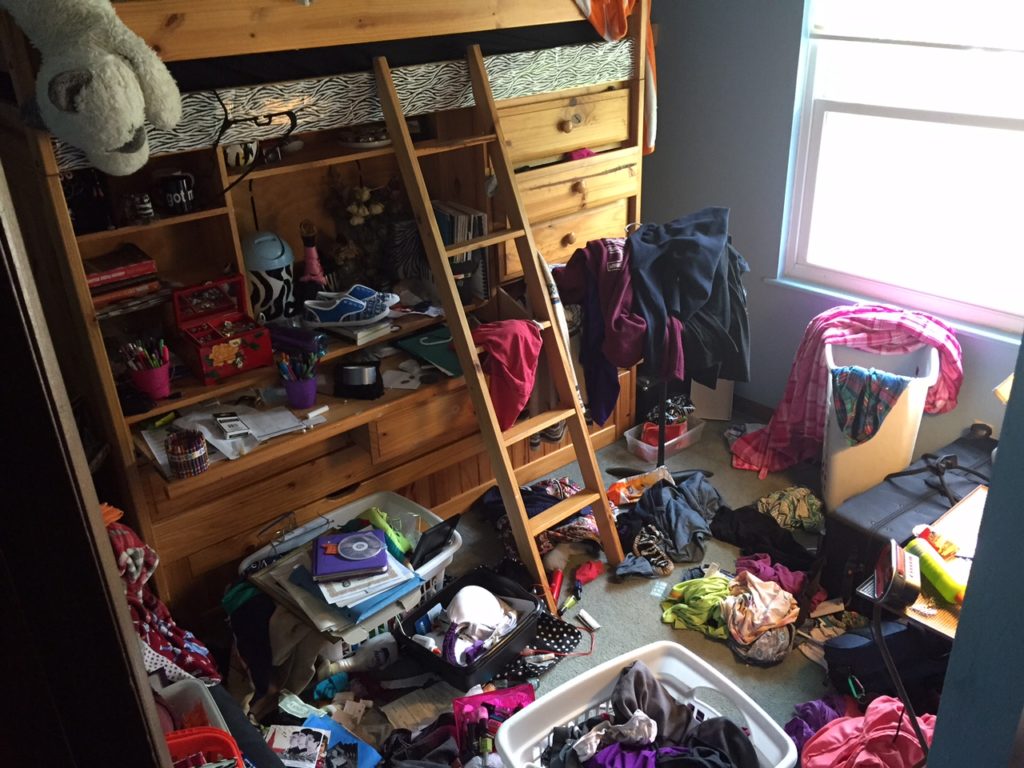
The other day a parent messaged me, wondering what to do about a lying teenager. Her question prompted me to flesh out this post that I started almost two years ago.
Let me start by saying that “lying” is one of the things that ought to be on every parent’s “Majors” list. I’ve blogged about Majors and Minors elsewhere, but let me just state that few things are more “Major” than having family relationships based on trust. Lying within the home can’t be ignored.
But just because something is on the Majors list doesn’t mean it has to be dealt with severely or punitively–it just has to be dealt with. In the case of a child’s lying, I think it may be just as useful to consider the reasons for the child’s lying, rather than be solely punitive about it. Before jumping to confrontations, it would seem useful to think about what internal things may be going on that might make them (and us–if we were honest) choose to lie. Rather than immediately react to what they did wrong, let’s slow down, gather all the information, and listen. Only then can we learn what’s really going on with our children. Here are six possible reasons they might be lying.
1. Some kids lie out of fear. Could it be that our discipline methods are overly strict? Any reasonable child would want to lie to avoid “setting off” an unreasonably punitive parent. Parents would be wise to consider whether they may be over-disciplining. An honest heart-to-heart conversation between the child and parents might reveal rules and expectations that are overbearing. If so, negotiating better rules and expectations might eliminate the need for the child to lie for self-protection.
2. Some lie so as to not hurt loved ones. Perhaps the lying is intended as a way to make the parents less anxious, worried, or crushed by the child’s choices. Thus, lying could actually be intended as a kindness. Such children view their parents as fragile; such parents need to convince their children that their own well-being doesn’t depend on the child doing everything perfectly. As I’ve controversially stated elsewhere, the parents need to communicate that they don’t need their kids to behave in order for them to thrive. The parents should model a resilient faith in Jesus that doesn’t need to pressure their kids into making perfect decisions all the time. In fact, it’s ok for them to fail!
3. Some kids lie as a way to protect someone else. As in the previous case, such lying might actually be intended as a kindness. The biblical Rahab hid the Israelite spies on her roof–and lied about it to the authorities. Her lying saved not only the spies but also the lives of her own family–and she was rewarded for doing the right thing! Likewise, the child who lies to the stranger at the door–saying their absent parent is home but “can’t come to the door”–is being wise, not wicked. In the same way, the kid who lies to keep a friend from getting in trouble is likely trying to do the greater good. Parents would do well to have conversations with their kids about when lying may be appropriate, when covering for a friend may be helping them, and when it actually might be hurting them unknowingly. Discussing how “true friends” should relate to each other is an important concept for them to understand during their years of nurturing in your home. Sometimes friends need to “wound” others rather than enable them to avoid responsibility. (Proverbs 27:6.)
4. Some kids lie so as not lose their parents’ approval. These kids have a perception that their parents’ love and acceptance depends on their good behavior. Wise parents would do well to communicate that–no matter what good or bad choices their kids may make in life–their love will never be in question. It is important to keep a distinction between the child’s behavior and their personhood. They need to be convinced that we unconditionally delight in their personhood, eliminating this reason to lie about their behaviors.
5. Sometimes kids lie to build themselves up. Each of us has a longing to feel accepted by others, so it’s no surprise that this is a common motive for kids’ lying. In this competitive “selfie-saturated” world of ours it’s easy to see why exaggerating one’s achievements may seem necessary for social survival. Lying may also be a defense mechanism to avoid bullying. If self-preservation is the cause of your child’s lying then berating him or her for lying might actually be adding to their feelings of not measuring up. Rather than punishing such boasting, it would be better to spend time empathetically listening to them while looking for opportunities to convey biblical truth to them about their worth in the eyes of God. Pray for them–and with them–about this.
On the other hand, if the child is lying as a way to put others down, that should also be addressed with a heart-to-heart discussion. Beneath the rough exterior of most bullies is insecurity. Helping them see how their lying may be wounding others is important for them to learn.
6. Some kids lie to cover up their rebellion. This kind of lying needs to be carefully handled as it indicates a deficiency in the child’s heart. Since we have no ability to directly change a heart, prayer is the best thing parents can do in such cases. But we can also indirectly affect their heart by the way we respond to their rebellious lying. Will it require consequences? Absolutely! But as stated earlier, be sure the consequences are reasonable. Any obvious overreaction will make the child focus on the parents’ faults rather than his or her own bad behavior. (This is where delayed consequences can really help avoid the perception that parents are being unreasonable and impulsive in their punishments. Such a delay buys the parent ample time to pray, think, and consult with others regarding which appropriate consequence would help the child learn the best lesson.)
Six Final Considerations:
First, since character is “more caught than taught,” parents must be careful to always model lives of personal integrity. If the kids overhear the parent calling in sick to work–while heading out to the golf course–no amount of lecturing on life’s virtues will compensate!
Second, reward honesty. Every time we catch our kids telling the truth, let’s affirm that wise choice.
Third, as I mentioned at the top of this post, lying often results in a breach of trust within the home. Consequences–if there are any– should be tailored to address this issue. It’s appropriate to reign in the leash if the freedom of a longer leash has been mishandled. This is a true principle that will apply for all of life.
Fourth, consequences should last as briefly as possible, with the stated goal of wanting to restore their freedom as soon as they show they can handle it. We want them to have freedom–and we want them to use it responsibly. Offer hope for a better tomorrow. “Grounded for a year” will only produce resentment instead of shaping a child’s character. Trust and verify.
Fifth, consider whether the lying might be age-related. It should be noted that preschool children typically manifest lying as part of their normal development. They may not fully grasp the difference between fantasy and reality–an example would be having an “imaginary friend.” They also are experimenting with reading others’ perceptions and controlling their own actions. Parents should keep this in mind as they confront the lying of preschoolers in the home. Kang Lee has done some interesting research (and a Ted talk) on the subject of early-childhood lying if you’re interested.
Finally, is the lying related to mental disabilities or trauma? I haven’t studied these issues yet, but consideration might need to be made for such cases. I’ll edit this post as I learn more during my graduate school counseling training.











